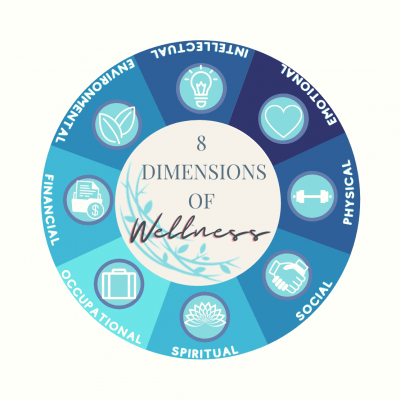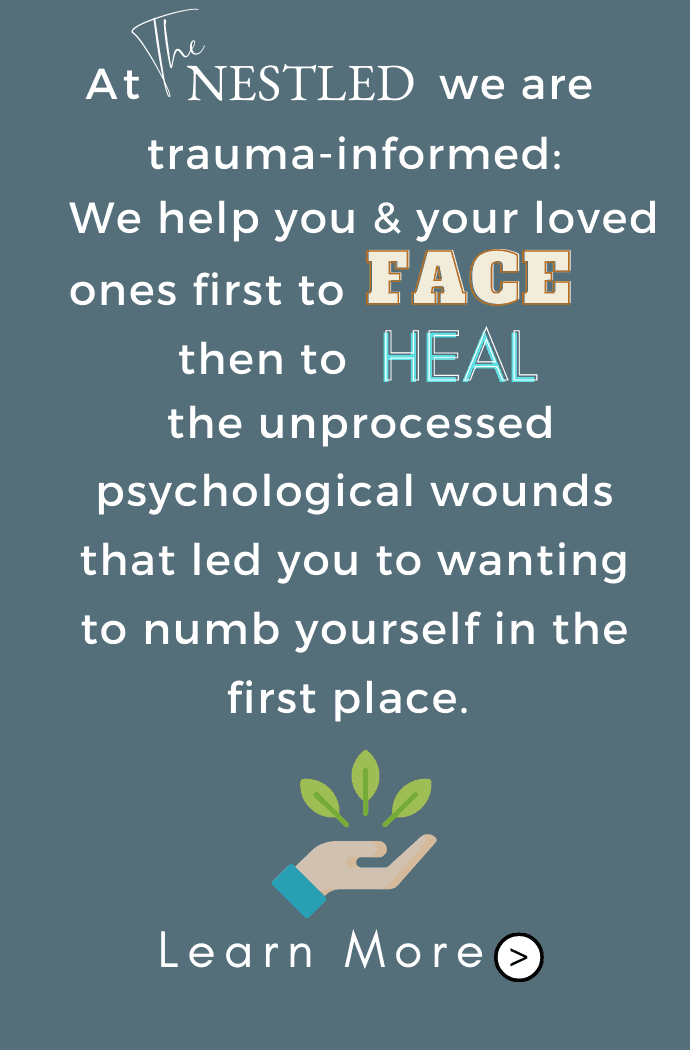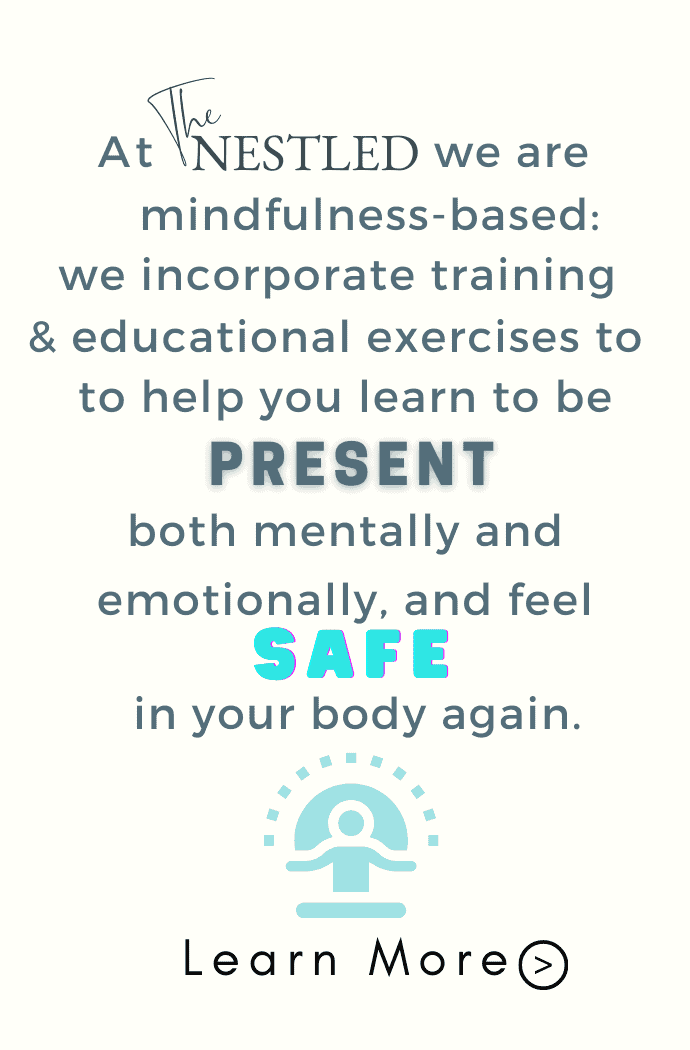Recovery is often viewed as a one-off event. A person goes through rehabilitation and when they leave, they are done. The reality is that recovery is an ongoing process and one that must include the eight dimensions of wellness. These eight dimensions help an individual to create daily habits that improve their quality of life and overall well-being. Without them, a person is likely to relapse. Even folks who live in a state of dysfunction and develop mental health issues, benefit from the eight dimensions. But what does it all mean? Let’s take a look and learn more about this concept
What Does Wellness Mean?
Wellness is defined as: “the quality or state of being healthy in body and mind, especially as the result of deliberate effort”.
This definition, provided by Dictionary.com, suggests a level of mindfulness in our daily tasks that are geared towards mental and physical health. Taking each action we do, thinking about it, and choosing the action based on our needs.
When it comes to wellness in addiction treatment, another definition is provided: “an approach to healthcare that emphasizes preventing illness and prolonging life. As opposed to emphasizing treating diseases”. At The Nestled Recovery, we don’t treat your addiction, we treat your whole self so that you have the greatest success at recovery.
The Eight Dimensions Of Wellness
The eight dimensions of wellness take a closer look at all aspects of what a human being needs in their life to be mentally and physically healthy. Here are the eight dimensions and how they affect everyone, not solely the chemically dependent.
Emotional
Emotional wellness means having the ability to cope with stressful situations and having healthy relationships. This does not mean a person lives through the lens of toxic positivity. Rather, they are able to get through hardships and struggles without turning to a substance. Relationships won’t be perfect but they can avoid unhealthy unions and manage wholesome ones. Emotional wellness is also highly important for recovering from traumatic experiences.
Environmental
Environmental looks at where you live and who you live with. It also includes what the environment at work and with friends looks like. These environments should be healthy, pleasant, and stimulating. We work with you to identify positive environments so that your return to your daily life is well-supported.
Financial
Financial wellness is important to a substance user. Stress about struggling to pay bills or fear of losing a home can send someone into a spiral of substance misuse as a coping mechanism. Before you leave our facility, we educate you on financial wellness so that you have a greater chance of success. You can also learn more about education that can help you land sustainable income.
Intellectual
Speaking of education, intellectual wellness touches on that issue. We seek to help you get an education to help you improve your sustainability. This may be learning a new skill or trade. Sometimes you learn something to expand your creativity so that you have a new healthy coping mechanism. We have plenty of resources to help you learn whatever you are interested in.
Physical
Physical wellness is a highly recognized area in addiction treatment. We know that your physical health plays an important part in your recovery. We provide delicious, healthy meals that encourage physical activity. We also offer exercise to help you improve your strength and feel better overall. Dopamine release from exercise is a great way to get a natural “high” while doing something that supports your overall health.
Social
Social wellness is improving your sense of connection and belonging in the world. A healthy support system is vital to the success of your recovery. We teach you the skills necessary to improve your relationships and make new bonds. We also provide help in finding new communities to be involved with to expand your social network.
Spiritual
Spiritual wellness is often confused with religious activities. Rather than focus on religion, we focus on your meaning in life and sense of purpose. We help you look at your ethics and morals and allow you the space to expand on that. If you desire religion or spiritual practice to enhance your sense of purpose, we will help you find support.
Vocational
Vocational wellness looks at employment and having sustainable work in your daily life. It also includes personal satisfaction. Boredom or excessive stress in a job or not making enough money to live off of, contribute to relapse. We help you create a vocational life that will encourage a healthy lifestyle.
Why Is Wellness So Important For Recovering From Substance Use Disorder?
Focusing solely on addiction ignores all possible relapse triggers in our lives. By acknowledging every aspect of our daily life, we help support your recovery to be a successful one by far. Millions of people around the world are learning how to support their recovery by utilizing the eight dimensions of wellness.
How Do Wellness Practices Integrate Into Drug And Alcohol Rehab?
Wellness is a state of optimal physical, mental, and social well-being. It is a holistic concept that includes physical, mental, emotional, and spiritual aspects of health. In addiction treatment and detox, wellness is an important goal, as it can help individuals recover from the physical and psychological effects of substance abuse and addiction.
How Does Addiction Impact Overall Wellness?
Addiction can have a negative impact on overall wellness in a number of ways. Substance abuse and addiction can lead to physical health problems, such as liver damage, heart disease, and respiratory issues. It can also contribute to mental health problems, such as depression, anxiety, and psychosis. Addiction can also cause social problems, such as strained relationships with friends and family and difficulty maintaining employment.
How Can Wellness Be Improved During Addiction Treatment?
There are several ways to improve wellness during addiction treatment, including:
- Engaging in regular physical activity: Exercise can help improve physical health, reduce stress, and boost mood.
- Eating a healthy diet: A healthy diet can support physical and mental wellness by providing the necessary nutrients for the body to function properly.
- Getting enough sleep: Adequate sleep is essential for physical and mental health.
- Practicing stress management techniques: Techniques such as meditation, deep breathing, and yoga can help individuals manage stress and improve overall wellness.
- Seeking support from friends, family, and healthcare professionals: Having a strong support system can be an important factor in improving wellness during addiction treatment.
How Can Wellness Be Maintained After Completing Addiction Treatment?
To maintain wellness after completing addiction treatment, it is important to continue engaging in healthy behaviors and seeking support when needed. This may involve attending support groups, such as Alcoholics Anonymous or Narcotics Anonymous, and participating in individual or group therapy. It is also important to continue practicing self-care, such as eating a healthy diet, getting enough sleep, and engaging in regular physical activity. Having a strong support system can also be helpful in maintaining wellness after treatment.
What Is The Relationship Between Mental Health and Addiction?
There is a close relationship between mental health and addiction. Many individuals with substance abuse disorders also struggle with mental health problems, such as depression, anxiety, and trauma. On the other hand, substance abuse can also contribute to or exacerbate mental health problems. It is important to address both substance abuse and mental health issues in treatment in order to achieve long-term recovery.
How Can Holistic Approaches Be Incorporated Into Addiction Treatment?
Holistic approaches to addiction treatment focus on the whole person, including physical, mental, emotional, and spiritual aspects of health. Some ways to incorporate holistic approaches into treatment may include:
- Incorporating practices such as meditation, yoga, and mindfulness into treatment
- Providing nutrition education and support
- Offering art or music therapy
- Providing access to nature and outdoor activities
- Incorporating spiritual practices, such as prayer or spiritual counseling, into treatment.
Final Thoughts On Wellness And Recovery
When you are ready to tackle your addiction and improve your life, we are here to help. You can call our team and get started on a healthier new you. We offer a wide range of activities and treatment modalities to make recovery an attainable achievement.









